|
|
|
|
We all know the Great Barrier Reef is in dire straits, but now it’s official. The International Union for the Conservation of Nature, a global authority, has just declared the reef’s conservation status as “critical”.
As Jon Day and Scott Heron write today, the finding is sobering, but not entirely unexpected.
This year, the reef suffered its third mass coral bleaching event in five years. Water quality remains poor even after years of interventions, and ocean acidification and coastal development also threaten the natural wonder.
The assessment will come as an embarrassment to the Morrison government, for several reasons. First, it damages Australia’s tourism reputation on the world stage. Second, it’s a reflection of our failure to act on climate change – something at which Australia excels.
Nowhere is that failure more obvious than in the Morrison government’s “gas-led recovery” from the pandemic.
As Tim Baxter writes today, emissions from Australia’s gas industry rose in the year to June, even taking into account lockdown restrictions. The emissions are cancelling out gains won by Australia’s renewables boom, and put people and places – including the Great Barrier Reef – in further climate jeopardy.
Over the past 12 months, we on the environment and energy desk have focused on the big issues affecting Earth and its future. And they don’t come much bigger than the climate crisis, Australia’s recovery from its summer bushfires and the global transition to low-carbon energy.
At The Conversation, we give you information you can trust, free from hype, misinformation and vested interests. But we can only do that with your help. If you’re not already, please consider becoming a monthly donor and help us provide clear, evidence-based journalism for years to come.
|
Nicole Hasham
Section Editor: Energy + Environment
|

|
|
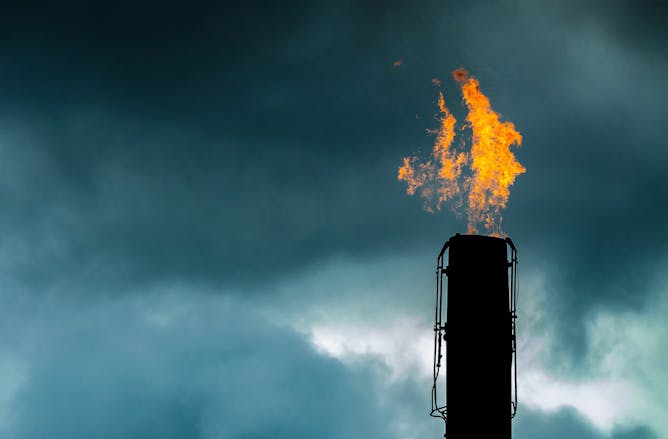
Shutterstock
Tim Baxter, University of Melbourne
It reveals in alarming detail how gas emissions are cancelling out the gains won by Australia's renewables boom, and uncovers misleading claims underpinning our gas-led economic recovery.
|
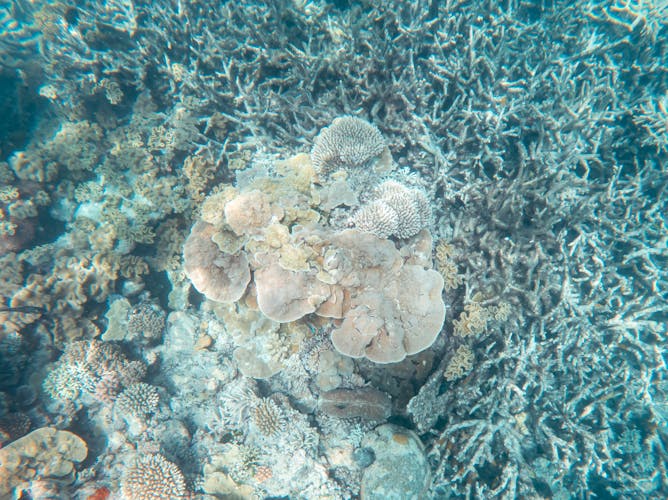
Shutterstock
Jon C. Day, James Cook University; Scott F. Heron, James Cook University
The health of five World Heritage sites in Australia has worsened, according to a sobering report from the International Union for Conservation of Nature.
|
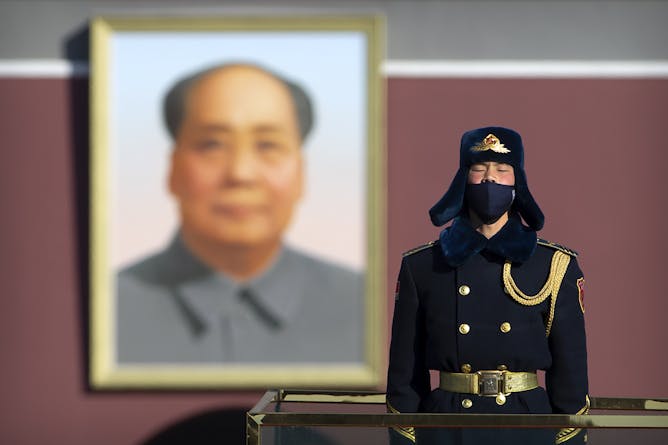
Mark Schiefelbein/AP
Chongyi Feng, University of Technology Sydney
China's attacks on Australia may seem over the top, but they are meant to achieve specific goals — playing to a nationalist domestic audience and making an example of Australia to the world.
|
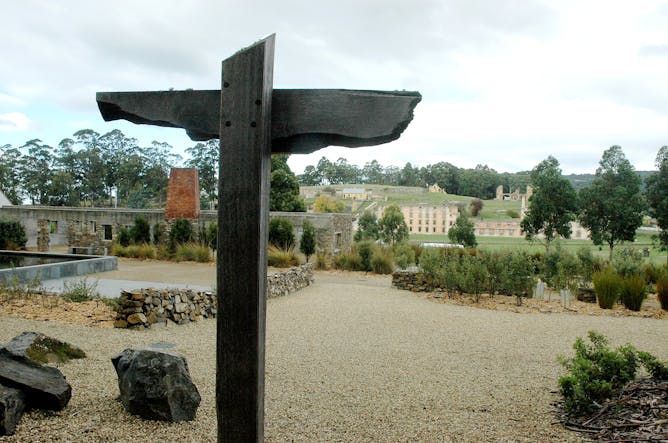
A memorial to the 35 people killed in the 1996 Port Arthur massacre.
AAP Image/Robyn Grace
Richard Bryant, UNSW
A film about the shootings is likely to be very distressing for people directly impacted by the massacre, particularly those who still have PTSD or strong grief responses.
|
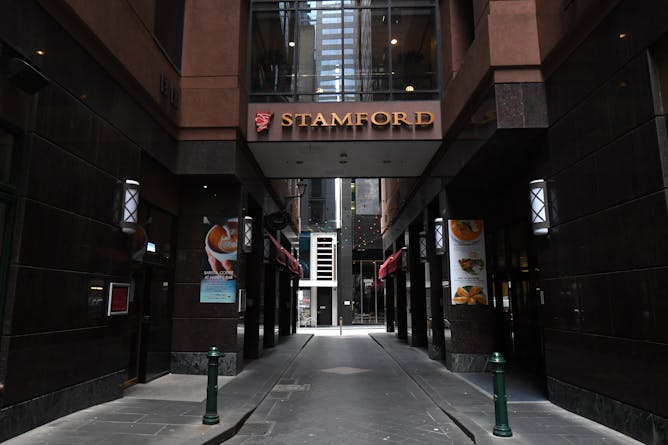
James Ross/AAP
Peta-Anne Zimmerman, Griffith University; Matt Mason, University of the Sunshine Coast; Vanessa Sparke, James Cook University
Three infection prevention and control experts break down Victoria's new hotel quarantine system.
|
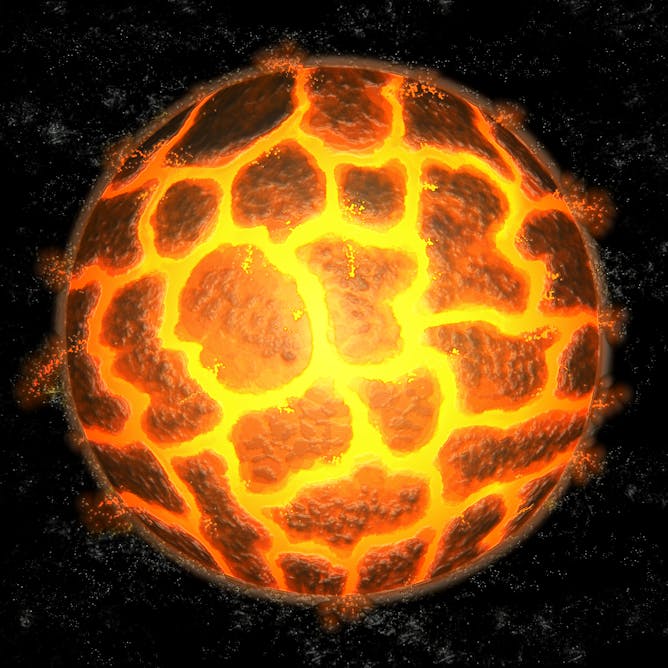
Shutterstock
Fabio A Capitanio, Monash University; Oliver Nebel, Monash University; Peter Cawood, Monash University
In what could be described as a rather difficult adolescence, Earth earliest continents remained in flux — disappearing and reappeared over 1.5 billion years before finally gaining form.
|
Business + Economy
|
-
Peter Martin, Crawford School of Public Policy, Australian National University
Our economy remains far weaker than it was a year ago and far weaker than it would have been had spending not collapsed.
-
Janine Dixon, Victoria University
Without a jump in consumer spending the recovery will be slow, and that's in doubt.
|
|
Education
|
-
Christopher Ziguras, RMIT University; Tom Alves, Australian Housing and Urban Research Institute
Australia has student accommodation with nearly 100,000 beds, many now empty. The large purpose-built student housing facilities are well suited for quarantining returning international students.
|
|
Politics + Society
|
-
Michelle Grattan, University of Canberra
Michelle Grattan discusses China's wolf warrior diplomats with Bates Gill, professor of Asian-Pacific security studies
-
Bernadette McSherry, University of Melbourne; Nesam McMillan
Criminal trials may hold offenders to account but they are far from perfect. The Victorian Law Reform Commission is looking at how restorative justice could be used for sexual offences.
-
Alexander Gillespie, University of Waikato
With tensions between China and New Zealand's main security allies increasing dangerously, could Jacinda Ardern play the role of peacemaker?
|
|
Cities
|
-
Rebecca Clements, University of Sydney; Elizabeth Taylor, Monash University; Thami Croeser, RMIT University
Instead of free parking, our post-COVID CBDs need a big vision to become attractive destinations that aren't car-friendly at the expense of being people-friendly.
|
|
Arts + Culture
|
-
Jessica White, The University of Queensland
Rather than presenting a disability as an obstacle, life writing can explore the joys, frustrations and creativity of living with disability or Deafness.
-
Daryl Sparkes, University of Southern Queensland
Home Alone is a beloved Christmas classic now 30-years-old – but it gets dark. Really dark.
|
|
Science + Technology
|
-
John Paterson, University of New England
Our study on weird ancient marine animals called radiodonts supports the idea that vision played a crucial role during the Cambrian Explosion, a rapid burst of evolution about 500 million years ago.
-
Ray Norris, Western Sydney University
When astronomers started using the new ASKAP radio telescope, they discovered mysterious circular blobs of unknown size and distance in the sky.
|
|
Health + Medicine
|
-
Jane Chalmers, University of South Australia
Here’s a snapshot of what research tells us about female orgasms, what we don’t know, and what researchers want to know next.
-
Michelle Villeneuve, University of Sydney
One interviewee told us: 'It would've been lovely if somebody had cared.'
|
|
| |
Featured jobs
|

|
— Townsville City, QLD, Australia
|

|
— Melbourne VIC, Australia
|
|
|
|
| |
| |
| |
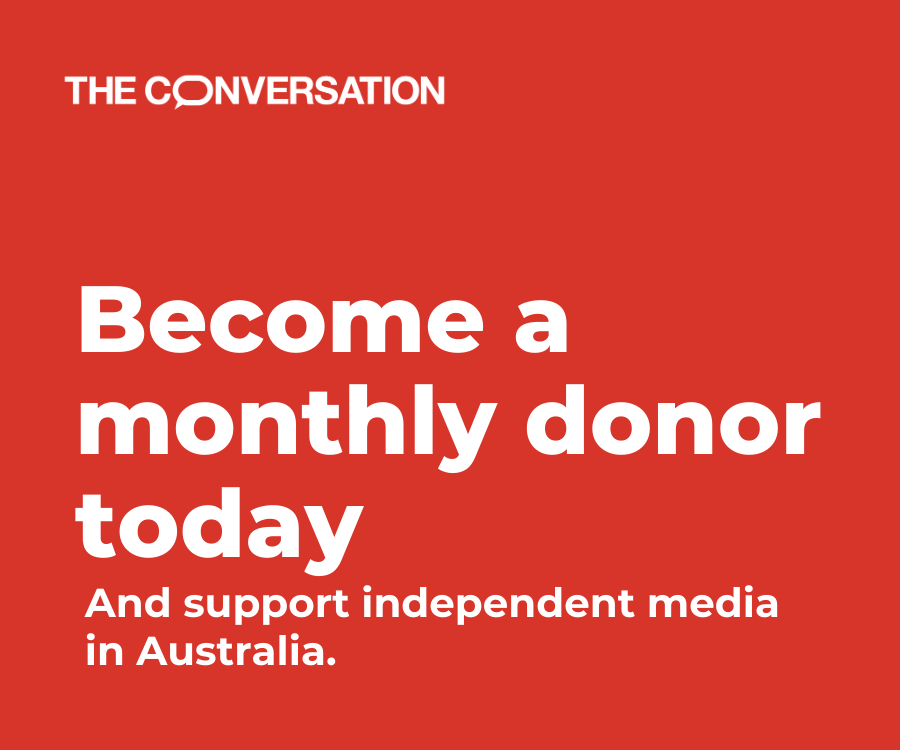
|
| |
| |
| |
Featured Events & Courses
|

|
8 week online course by BehaviourWorks Australia, Victoria, Not applicable, Australia — Monash University
|
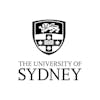
|
Online, Sydney, New South Wales, 2006, Australia — University of Sydney
|
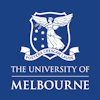
|
via Zoom, via Zoom, Victoria, 3010, Australia — University of Melbourne
|

|
Online, Online, Victoria, 3145, Australia — Monash University
|
|
|
|
| |
| |
| |
| |
| |
|
|
|
|
|
|
|